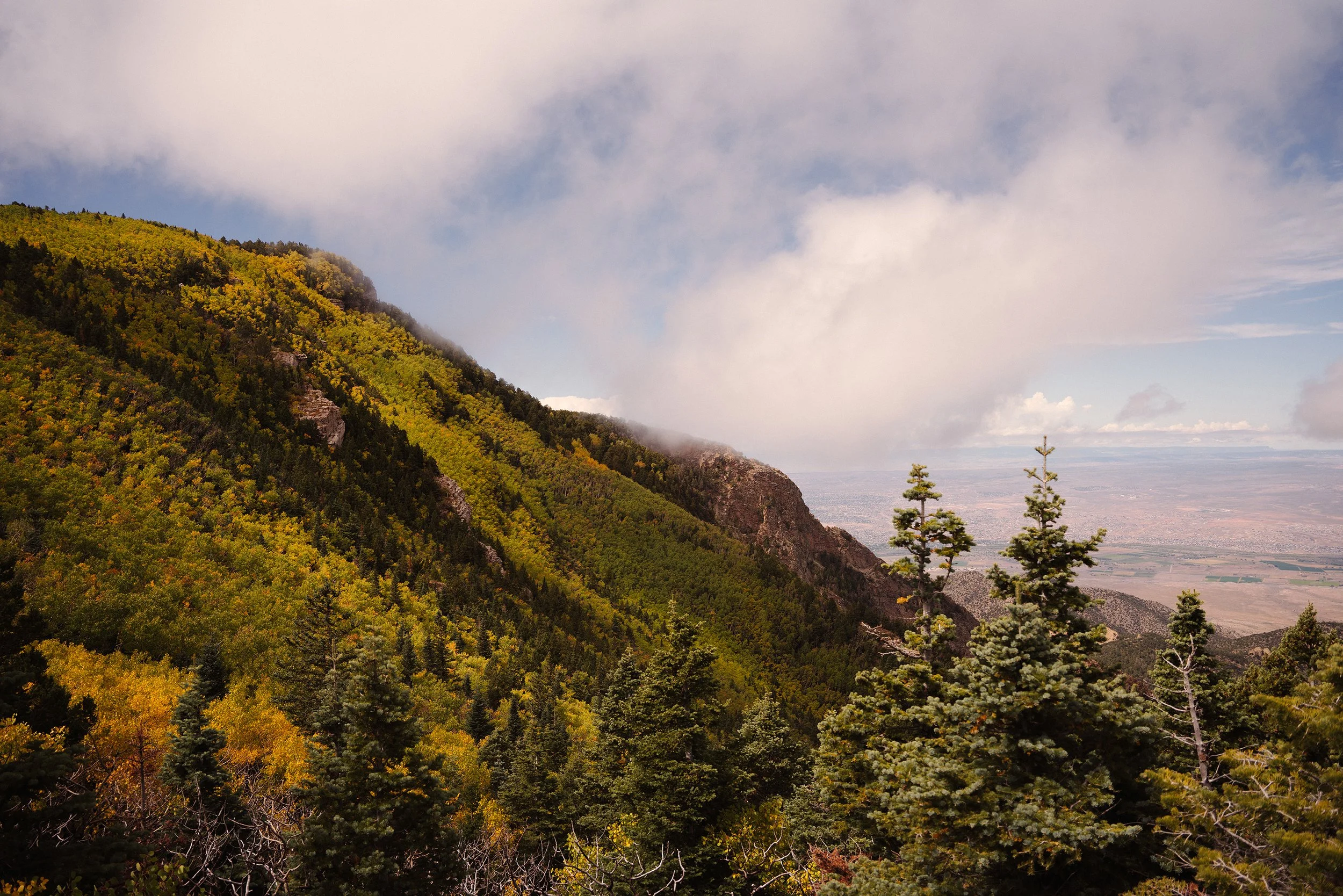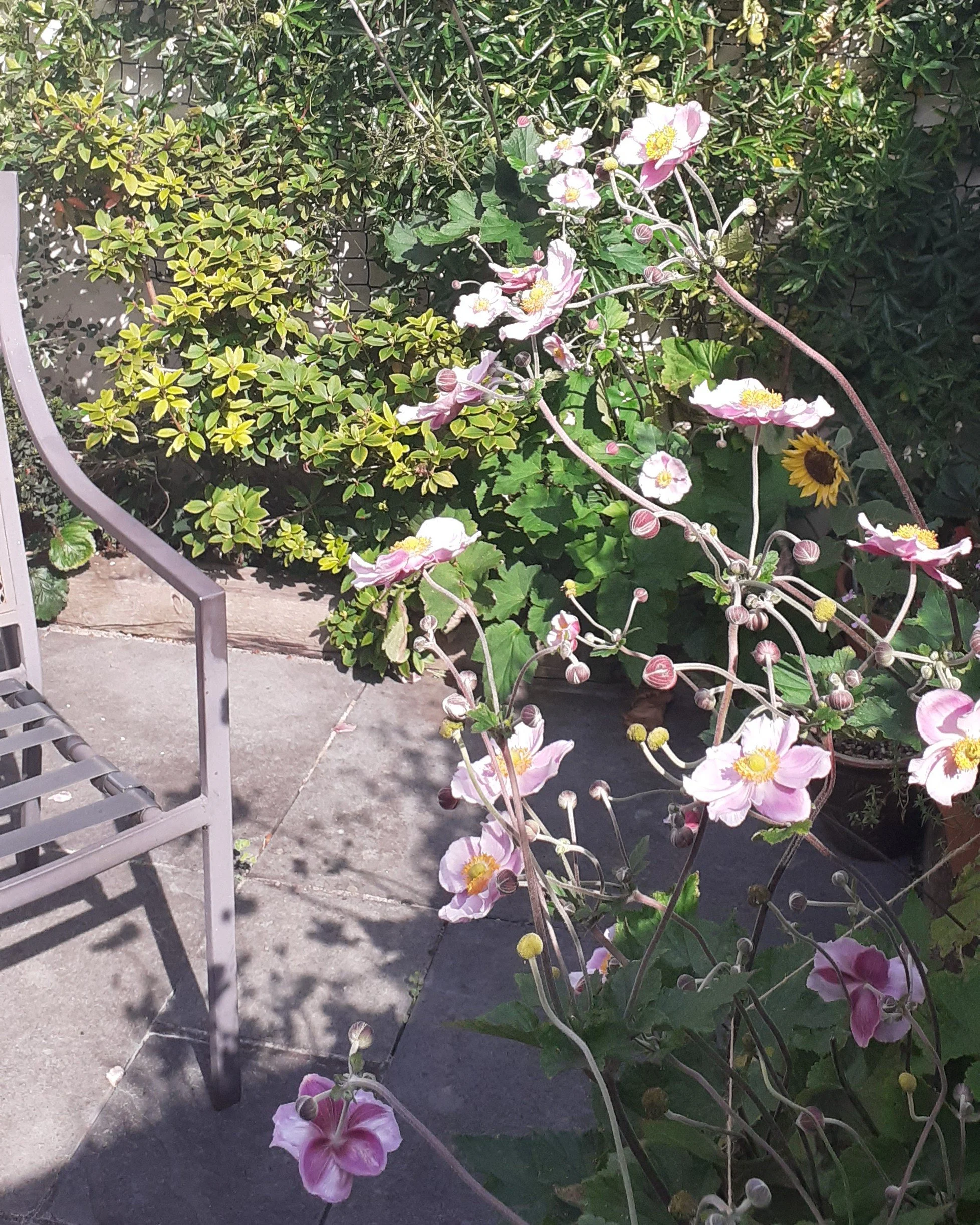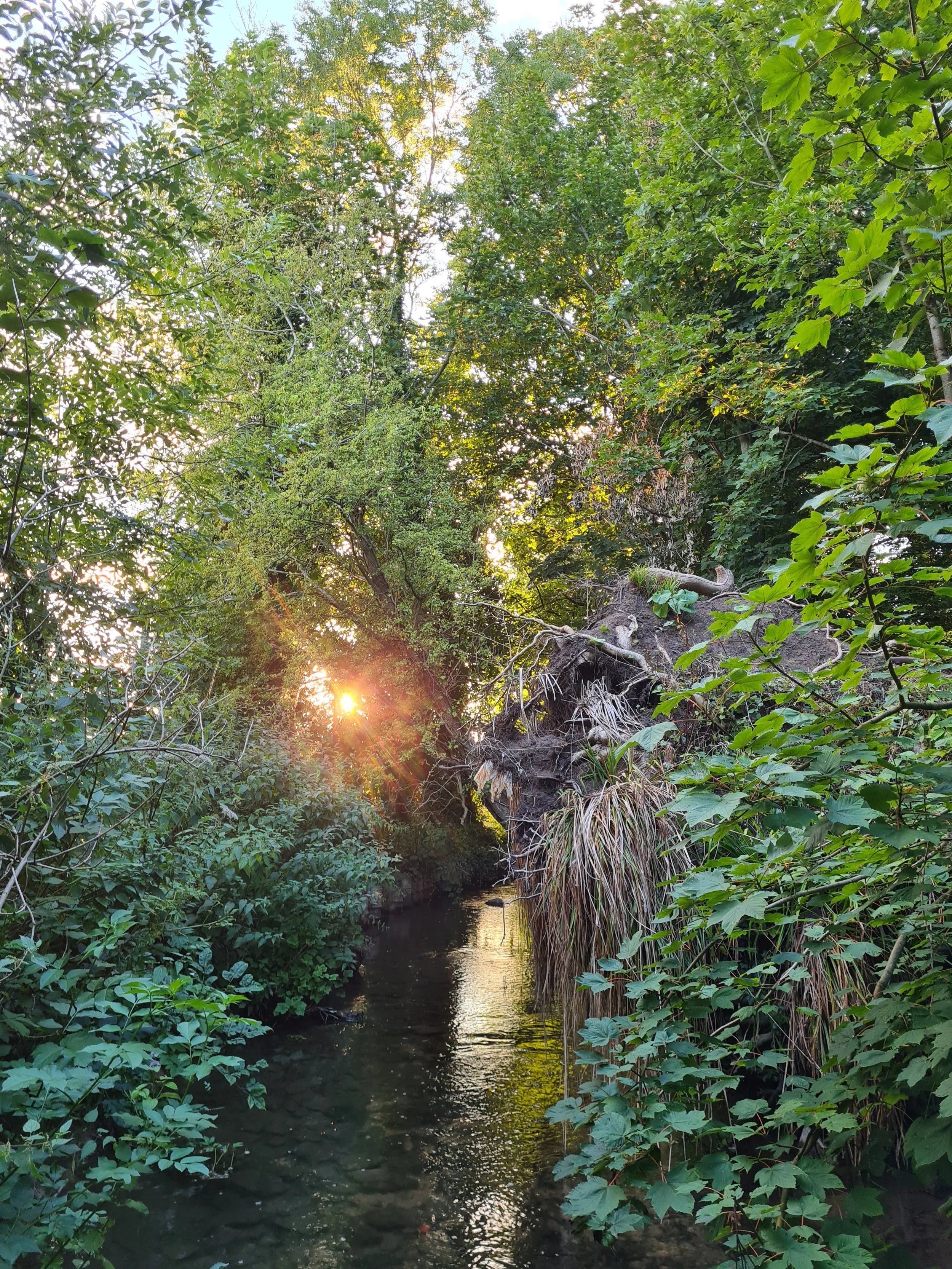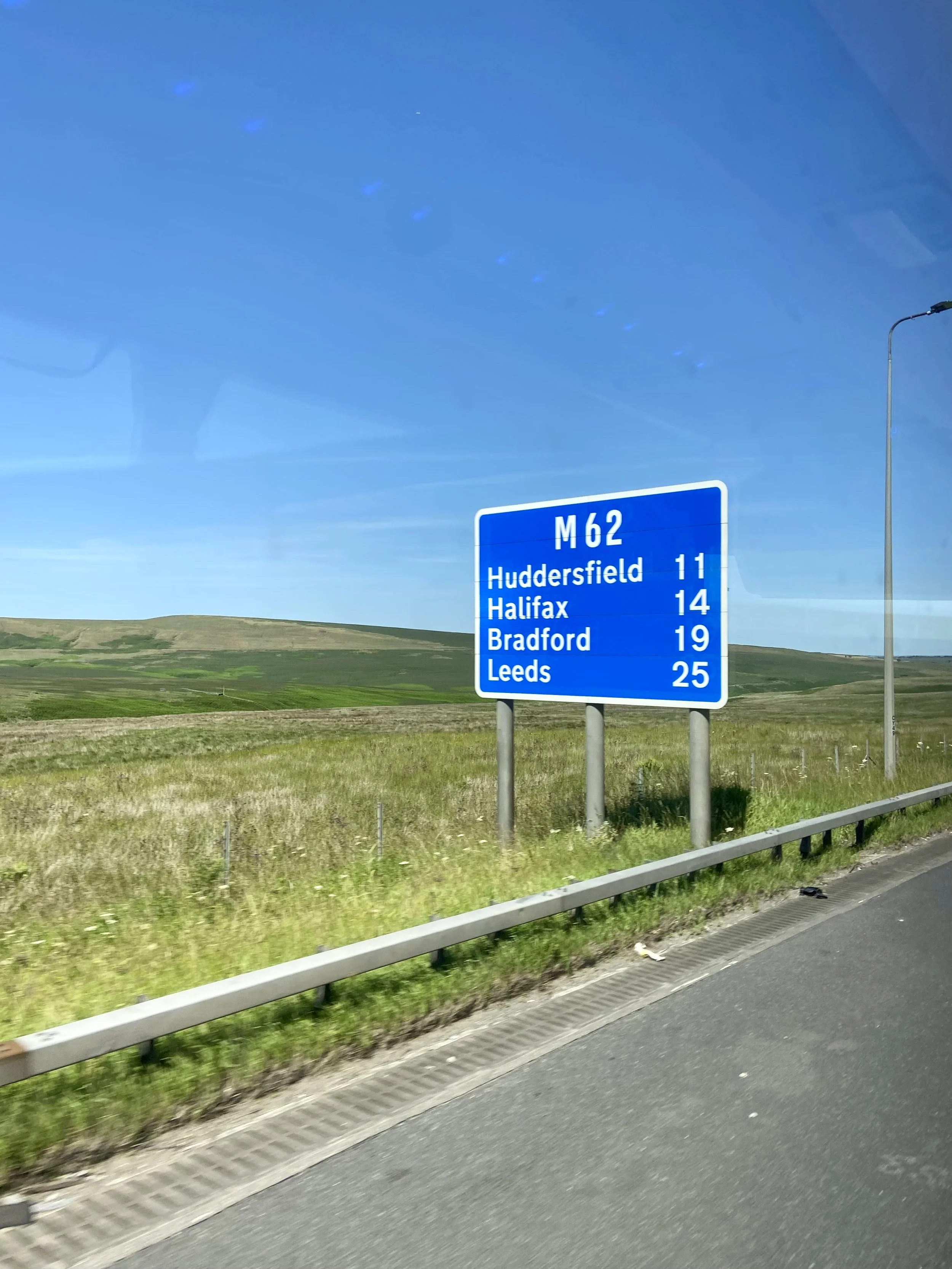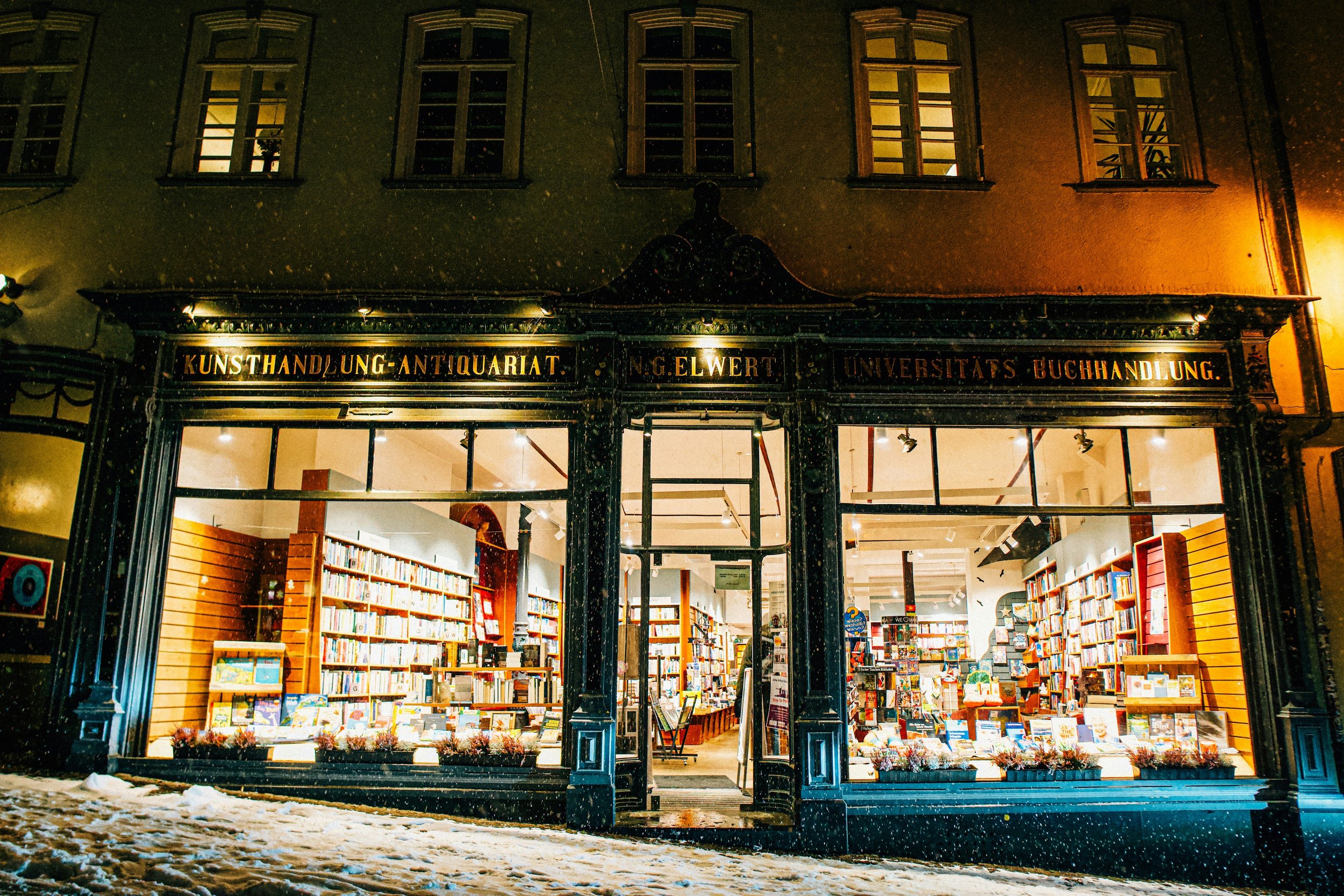Out of Place is an irregular series about movement and place, and the novels that take us elsewhere, by editor and regular contributor Anna Evans.
‘The hour between dog and wolf’. Cities of twilight in Jean Rhys’s After Leaving Mr Mackenzie.
There was zest in the air and a sweet sadness like a hovering ghost.
As I reach the Place du Châtelet it is twilight. In the half light, in the softening pitch of night falling, I can see the stark contrast of the trees stretching outwards to their blackened endings, to their shadows that meet the pale of the sky and the hint of darkness descending. How long is this state of twilight, this in-between time when day begins to be covered over, when light remains, and is finally lost? Sometimes it is hard to say. It slips past as I am trying to catch the moment. I have walked across the river in the dwindling shadows of afternoon, slipping by unnoticed like the fading light, until suddenly I look around and it is darker still, changing the look of the streets like a spell cast, concealing the way I have come.
In Jean Rhys’s novel, After Leaving Mr Mackenzie, the cities of Paris and London feel like dwelling places for ghosts, where shadows fall differently, and light and darkness are intensely felt. ‘The Place du Châtelet was a nightmare. A pale moon, like a claw, looked down through the claw-like branches of dead trees.’ Julia wanders the Paris streets until she finds herself in an unfamiliar part of the city: ‘I’ve gone too far,’ she thought. It is a moment of the book that marks a turning point, a sort-of-epiphany, powerful and understated. It is the impact of passages like these that sends me chasing for echoes and reverberations in places, searching for Jean Rhys’s cities, as if the Paris and London she writes about could be traced in footsteps or on a map.
Jean Rhys is a writer of twilight. The city streets at night can be magical but also sinister, dreamlike and unreal. Her cities are spaces of half-light and her writing leans towards the shadowed side of the street, to corners and hiding places. In her books there are countless images of shadows and reflections. Rhys wrote four novels during the 1920s and 1930s, and is best known for her novel Wide Sargasso Sea (1966), the book that brought her the most success and recognition. After Leaving Mr Mackenzie can be regarded as something of a turning point for Jean Rhys’s writing. Published in 1930, it is her second novel, and feels like a point of departure, in which she is starting to set out on a path of her own; a crossover book that allowed her to see herself as a writer.
After Leaving Mr Mackenzie starts and ends in Paris, mostly the quays and the streets behind the Left Bank of the Seine; with a sojourn in London, where Julia stays in a hotel in Bloomsbury and a boarding house in Notting Hill. The settings of the book are liminal and transient locations such as hotels, restaurants and cafés, cinemas, taxis, the underground. Streets and areas of the city which dispel a certain twilight atmosphere: ‘this deserted street, with its shabby, red-lit hotels, cheap refuges for lovers, was the right background for what she was saying.’ The book begins with Julia living in a cheap hotel that offers rooms by the day or month. The archetypal Jean Rhys hotel that offers anonymity and a hiding place, somewhere to recover following the end of her affair. She receives a weekly remittance from Mackenzie, that he pays to avoid any scenes. By the time the book begins, she has been there for six months and is leading a monotonous life, a pattern that is broken one day when instead of the usual cheque she receives a final payment from Mackenzie’s solicitor. Something snaps and Julia goes to confront Mackenzie in a restaurant about the way he has treated her. Returning to her lonely hotel room, she becomes restless and makes the decision to return to London, where she confronts her disinheritance from her family.
In her introduction to the novel, Lorna Sage describes it as ‘a novel poised between hope and despair’. The terrain of the book is this axis of hope: ‘There was such sweetness in the air that it benumbed you. It woke up in you a hope that was a stealthy pain.’ The book is tightly structured and shaped, the prose finely balanced. The book depicts a series of turning points. Lorna Sage describes the book as evoking ‘the dizzying, slightly nauseous feeling that you’re teetering on the edge of a revelation that’s just beyond your grasp.’ Julia is often at the edges of a realisation or epiphany that she never quite reaches. The attempt to put into words her own experience, perhaps a rendering of the author’s search for authenticity: ‘I knew that if I could get to the end of what I was feeling it would be the truth about myself and about the world and about everything that one puzzles and pains about all the time.’
Julia is described as someone of uncertain identity. ‘Her career of ups and downs had rubbed most of the hall-marks off her, so that it was not easy to guess at her age, her nationality, or the social background to which she properly belonged.’ She is described as ‘soft’, ‘afraid of life’, someone who lacks survival instinct. This is the territory Jean Rhys is interested in exploring in her fiction - the marginal, minor character that she places at the centre of her novels, quietly radical, the subject hovering at the edges of the frame. She writes from the perspective of women who depend on men to get by, without money, connections, or status, and nothing else to fall back on. ‘You see, a time comes in your life when, if you have any money, you can go one way. But if you have nothing at all – absolutely nothing at all – and nowhere to get anything, then you go another.’
For Julia, Mackenzie and his solicitor, represent money and respectable society, against which she has ‘a dog’s chance’. The mode of living Rhys describes is one of living by chance, a sense of constant insecurity, a life which feels like a ‘series of disconnected episodes.’ This impulse to portray what it is like to have these narrowing, diminishing choices. It is a world in which stability and continuity does not prevail – is not really one of the options available: ‘Because she could not imagine a future, time stood still.’ Twilight is the perfect time of day for this sort of person to emerge, who occupies the shadows; she knows that in the shadows it is possible to hide. In the approach of night, her heroines are the ones with nowhere to be, friendless and jobless, who lurk in cafes, drift through the streets or hide in hotel rooms. Julia lives a precarious existence in which reckless decisions can seem like the only course of action. The return to London feels like one last roll of the dice: ‘If a taxi hoots before I count three, I’ll go to London. If not, I won’t.’
London is portrayed as dark and impenetrable and covered in fog. After the illuminated streets of Paris and the atmosphere of the cafes, London feels deserted, and the streets are badly lit: ‘This place tells you all the time, “Get money, get money. Get money, or be for ever damned.” Just as Paris tells you to forget, forget, let yourself go.’ Rhys’s cities are often claustrophobic, but her portrayal of London is particularly enclosing, described as ‘a heavy darkness’ that ‘made walls round you, and shut you in so that you felt you could not breathe.’ The book holds a mirror to Rhys’s own return to London, and to England; the sense of claustrophobia when she writes of this particular form of exile, trapped by circumstances. The outsider perspective that is not made explicit until her later work. After a while ‘you stopped believing that there was anything else anywhere.’
For Julia, London appears a dark and terrifying place to return to, and as she walks around the city her fear and unease deepen: ‘A feeling of foreboding, of anxiety, as if her heart were being squeezed, never left her.’ She has lost the indifference to her fate that sustained her precarious existence in Paris. Julia begins to feel as though she has returned to where she started, as though she is caught in a circle of time, ‘predestined’, a familiar and uncanny feeling instilled by the hotel room and her return to London. As she walks around London she encounters the ghost of her younger self, walking towards her through the fog; it drifts up to her and passes by: ‘The houses and people passing were withdrawn, nebulous. There was only a grey fog shot with yellow lights, and its cold breath on her face, and the ghost of herself coming out of the fog to meet her.’
Throughout the book, Julia is described as a ghost. She is ‘pale as a ghost’, ‘silent and ghost-like’, ‘an importunate ghost’. The picture of Julia is of someone in the process of disappearing, haunting the streets and hotels of Paris. Jean Rhys often described herself as feeling like a ghost. In the book, Julia constantly seems to be searching for someone to hear her story as it to convince herself and to believe that it really happened. The fear of becoming a shadow, of erasure and non-existence, parallels Rhys’s own intense self-doubt and determination in the story of her struggle to become a writer. The fear of judgement, and the idea that no one would believe her, is present in the book. She had to construct her own universe, to create a new space for her truth and authority as a writer.
Within the haunted spaces of her cities, shadows are imagined as the ghosts of those who have passed through, just at the edge of the conscious world. This twilight city is when these ghosts might emerge, invisible and unnoticed apparitions, the lost souls of any city. A series of doubles haunt the edges of the narrative, in cafés, on the streets, travelling on the underground, buskers and street musicians. Some appear as doppelgängers, like a mirror image or perhaps a forewarning of the future, and the gaps and the spaces they create are revealing. Those who drift in and out, at the edges of her city spaces, reveal an affinity with the precarious or homeless, a sympathy for the lost and forsaken, and often for animals. Rhys’s heroines are always one or two steps away from them, the border between them is porous.
In After Leaving Mr Mackenzie, the river has a presence, and Julia watches it through the window of her hotel. At the start of the book there is a sense that she resists the river, watching it only from a distance, observing that at night the character of the river seems to change and its forces to grow stronger. Later in the book, it feels like a turning point as she walks towards the river, no longer resisting its pull. The calm surface of the water retains its mysteries. The river is unpredictable, and disguises hidden depths: ‘Anything might happen.’ Julia is entranced by the shadows of branches in the water, and the way they appear to be dancing, snake-like, twisting with long arms that reach out and beckon from pools of silver light. Below the smoky surface of the water, they appear to be struggling from the depths. In her work, the city streets are often figured as rivers, full of reflections of light and water that suggest a fluidity, a crossing of boundaries. At night the river becomes, like the streets, a living presence, an unknown world that drifts through the city, fearful and strange, and alive.
The starkness of the city and its intense poverty, offers spaces for encounters with those who emerge in twilight. As Julia walks through the city at night, crossing into a quarter that she is less familiar with, she has the realisation that she has walked too far. This turning point, in an unknown part of the city, marks a turn towards indifference for Julia, she detects a difference in her feelings towards herself and the fate of others around her. In a doorway she sees a figure, hungry and poor: ‘It used to be as if someone had put out a hand and touched her heart when she saw things like that, but now she felt nothing. Now she felt indifferent and cold, like a stone.’ Here is a quiet turning point for Julia, a moment in which on the surface nothing changes, and yet it seems that something extraordinary occurs on the streets of Paris where she loses her sense of empathy. ‘And it was funny to end like that – where most sensible people start, indifferent and without any pity at all. Just saying: ‘It’s nothing to do with me. I’ve got my own troubles. It’s nothing to do with me.’
Rhys describes the crossing over into twilight as ‘the hour between dog and wolf’. In the change of the light, anything can happen, everything is shifting and uncertain. When you shake off the inhibitions of daylight, as you might shake your fur and slink off into the cool of evening, eyes widening. The cloak of night wrapping itself around your shoulders as you sink into the streets, your footsteps absorbed in shadow. The night conceals and casts longer shadows for you to hide, the unaccountable wolf drifting off into unseen places. The hour between dog and wolf, between the tame and the wild, crossing back into a species of twilight, as if finally, Julia accepts her fate. The turning point brings no great transformation. Everything continues as it was. She sits on the terrace of a café, and has another drink, as day melts into evening. Alone again in the city, as night is falling, the end of another chapter.
The street was cool and full of grey shadows. Lights were beginning to come out in the cafés. It was the hour between dog and wolf, as they say.
Fading out and into this understated description of twilight. This is no elaborate passage describing the coming of night, and yet reading it I find myself in the twilight hour. The in-between hour, where the light begins to dissolve into darkness. A gradual and then sudden falling away, of imperceptible changes. Paris is slowly illuminated, transcending into evening. The lighted windows of cafés. The streets around the left bank of the river, the quays, the shadows lengthening.
***
Anna Evans is a creative non-fiction writer with interests in place, memory, and migration, and an editor of Elsewhere. She is a writer from Huddersfield, living in Cambridge in the UK. Some of Anna’s recent work has featured in Echtrai Journal and Panorama Journal of Travel, Place and Nature. She enjoys writing about landscape – nature, cities, and all the places in-between. You can read more about Anna and her work on her website The Street Walks In. You can find more of Anna’s contributions to Elsewhere here.
Jean Rhys (24 August 1890 – 14 May 1979) was born in Dominica in the Caribbean and lived there until leaving for Britain at the age of 16, where she attended school in Cambridge and stage school in London. After working as an actress and on tour with the chorus, she married a Dutch-French journalist and spent some years in Europe, in various cities including Vienna and Paris. It was in Paris that she met Ford Madox Ford who encouraged her to write and published her first story in the Transatlantic Review. Her first book, a collection of short stories, The Left Bank (1927), was followed by four novels set in Paris and London: Quartet (1928), After Leaving Mr Mackenzie (1930), Voyage in the Dark (1934), and Good Morning, Midnight (1939). Following the publication of these books, and the start of the Second World War, Rhys fell out of view and drifted into obscurity, and her books fell out of print. During these years she wrote very little. It was many years later that she emerged with a new book, Wide Sargasso Sea, to great success and acclaim, followed by two books of short story collections, Tigers Are Better-Looking (1968) and Sleep It Off Lady (1976). Her final book, Smile Please, an unfinished autobiography, was published following her death in 1979.


